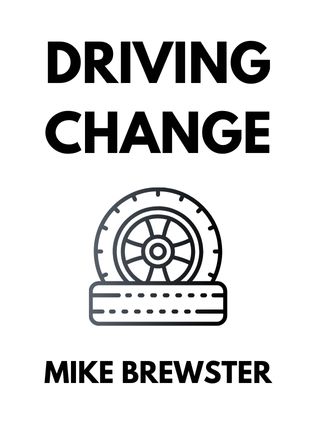
Driving Change
The UPS Approach to Business
By Mike Brewster,
Published 06/2007
About the Authors
Mike Brewster is a renowned business journalist and the author of several influential books including "Unaccountable" and "King of Capital." With a keen eye for detail and a knack for uncovering the inner workings of businesses, Brewster brings a journalist's rigor and narrative flair to "Driving Change."
Frederick Dalzell is a historian with The Winthrop Group, a consulting firm that specializes in historical research and archival services for businesses and nonprofit organizations. Dalzell's historical expertise and methodical research complement Brewster's journalistic approach, resulting in a comprehensive and engaging narrative.
Main Idea
"Driving Change" provides an in-depth look at the evolution of United Parcel Service (UPS) from its humble beginnings to becoming a global leader in logistics and package delivery. The book explores the key strategies, cultural values, and innovative practices that have propelled UPS to success, offering valuable lessons for businesses and managers worldwide.
Table of Contents
- Introduction: The UPS Story
- Culture as a Competitive Advantage
- The Policy of Spic and Span: Becoming 'Brown'
- Constructive Dissatisfaction and the Quest for Continuous Improvement
- A Common and Uncommon Carrier
- Rising to the FedEx Challenge
- Beyond the Golden Link
- Creating a Truly Global Business
- The Technology Company That Delivers Packages
- The Ownership Company
- Synchronizing Global Commerce, One Supply Chain at a Time
- One Company, One-to-One
- Revealing the 'Secret Sauce' at UPS
Culture as a Competitive Advantage
Jim Casey, born in 1888 in Nevada, was the visionary behind UPS. At a young age, he displayed entrepreneurial spirit and tenacity, starting his first business at 15. Casey's early experiences shaped the company's culture, emphasizing integrity, hard work, and exceptional customer service.
In 1907, Casey and Claude Ryan founded the American Messenger Company in Seattle, which eventually became UPS. They focused on employing clean-cut boys from good families, setting a precedent for the company's future hiring practices. This attention to character and reliability laid the foundation for a strong corporate culture.
UPS's culture evolved through the years, driven by a collective commitment to high standards and continuous improvement. In 1927, Casey introduced a stock ownership plan that included all employees, fostering a sense of ownership and loyalty among the workforce. This unique approach helped UPS build a dedicated and motivated team, contributing to its long-term success.
"Every CEO since Casey has found reasons to invoke his spirit. A dynamic founder can be an invaluable asset for a young company, but a problematic legacy as well." - Mike Brewster
The Policy of Spic and Span: Becoming 'Brown'
UPS adopted a strict dress code and etiquette standards early on, with drivers required to maintain a clean-shaven appearance, wear pristine uniforms, and exhibit scrupulous politeness. This attention to detail extended to the company's vehicles, which were painted brown to appear clean and professional on the roads.
This focus on appearance and professionalism helped UPS establish a strong brand identity and build trust with customers. The brown uniforms and package cars became synonymous with reliability and excellent service, reinforcing the company's commitment to high standards.
Sign up for FREE and get access to 1,400+ books summaries.
You May Also Like
Rich Dad Poor Dad
What the Rich Teach Their Kids About Money - That the Poor and Middle Class Do Not!
By Robert T. KiyosakiFreakonomics
A Rogue Economist Explores the Hidden Side of Everything
By Steven D. Levitt and Stephen J. DubnerThe Lean Startup
How Today's Entrepreneurs Use Continuous Innovation to Create Radically Successful Businesses
By Eric RiesWho Moved My Cheese?
An Amazing Way to Deal with Change in Your Work and in Your Life
By Spencer Johnson, M.D.Factfulness
Ten Reasons We're Wrong About the World – and Why Things Are Better Than You Think
By Hans RoslingMake Your Bed
Little Things That Can Change Your Life...And Maybe the World
By William H. McRaven



















